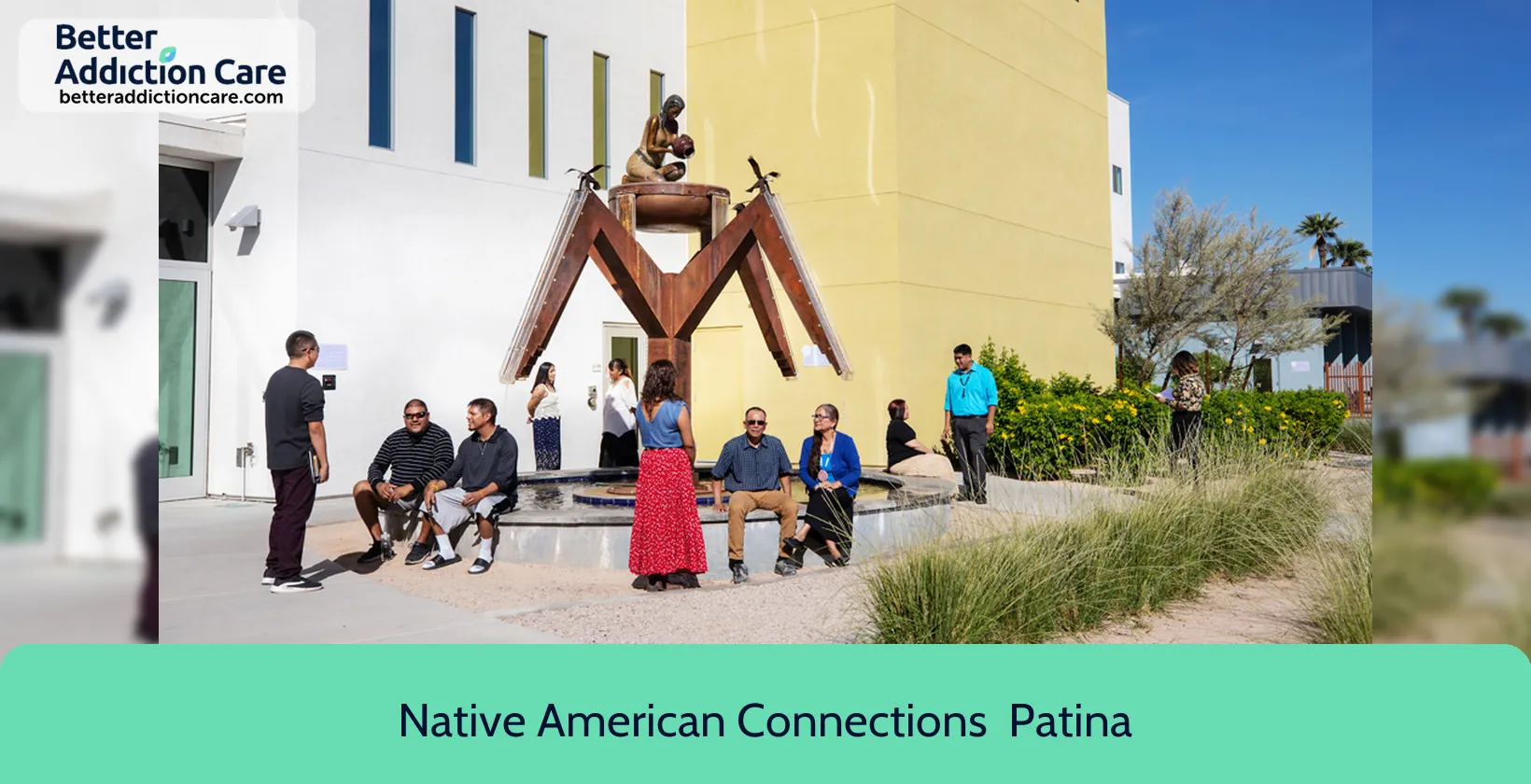Native American Connections - Patina Wellness Center
Overview
Native American Connections - Patina Wellness Center is a substance abuse treatment center for people seeking treatment near Maricopa County. As part of their treatment modalities for recovery, Native American Connections - Patina Wellness Center provides cognitive behavioral therapy, substance use disorder counseling, and trauma-related counseling during treatment. Native American Connections - Patina Wellness Center is located in Phoenix, Arizona, accepting cash or self-payment for treatment.
Native American Connections - Patina Wellness Center at a Glance
Payment Options
- Cash or self-payment
- Medicaid
- State-financed health insurance plan other than Medicaid
- Federal, or any government funding for substance use treatment programs
- IHS/Tribal/Urban (ITU) funds
Assessments
- Screening for tobacco use
- Comprehensive substance use assessment
- Complete medical history/physical exam
- Comprehensive mental health assessment
Age Groups
- Young adults
- Adults
Ancillary Services
- Case management service
- Integrated primary care services
- Suicide prevention services
- Residential beds for client's children
- Child care for client's children
Highlights About Native American Connections - Patina Wellness Center
6.92/10
With an overall rating of 6.92/10, this facility has following balanced range of services. Alcohol Rehabilitation: 8.00/10, Drug Rehab and Detox: 6.00/10, Insurance and Payments: 6.00/10, Treatment Options: 7.70/10.-
Alcohol Rehabilitation 8.00
-
Treatment Options 7.70
-
Drug Rehab and Detox 6.00
-
Insurance and Payments 6.00
Accreditations
State department of health:

Government agencies issue State Licenses, granting permission to rehabilitation organizations to conduct their business operations lawfully within specific geographic regions. Generally, the particular rehabilitation programs offered by a facility and its physical location dictate the necessary licenses needed for legal operation.
Treatment At Native American Connections - Patina Wellness Center
Treatment Conditions
- Alcoholism
- Mental health treatment
- Substance use treatment
- Co-occurring Disorders
Care Levels
- Hospital inpatient treatment
- Short-term residential
- Long-term residential
- Aftercare
- Halfway house
Treatment Modalities
- Cognitive behavioral therapy
- Substance use disorder counseling
- Trauma-related counseling
- Smoking/vaping/tobacco cessation counseling
- Group counseling
Ancillary Services
Additional Services
- Pharmacotherapies administered during treatment
- Mentoring/peer support
- Breathalyzer or blood alcohol testing
Special Programs
- Clients with co-occurring mental and substance use disorders
- Pregnant/postpartum women
- Clients who have experienced trauma
- Clients who have experienced sexual abuse
- Clients who have experienced intimate partner violence, domestic violence
Get Help Now
Common Questions About Native American Connections - Patina Wellness Center
Contact Information
Other Facilities in Phoenix

6.68

7.14

6.74

6.59

6.59

6.59

6.59

6.59
DISCLAIMER: The facility name, logo and brand are the property and registered trademarks of Arizona MENTOR - Aztec, and are being used for identification and informational purposes only. Use of these names, logos and brands shall not imply endorsement. BetterAddictionCare.com is not affiliated with or sponsored by Arizona MENTOR - Aztec.

